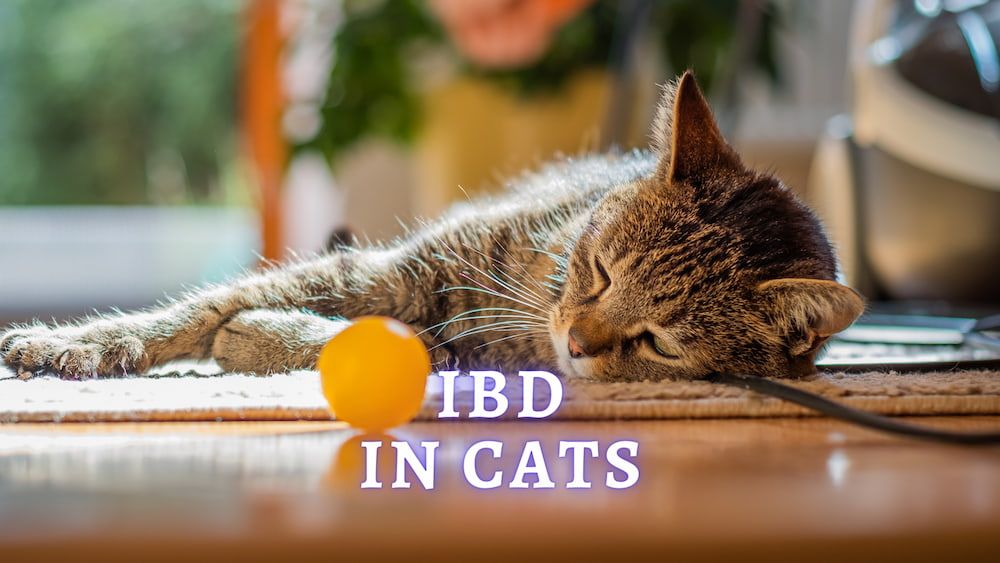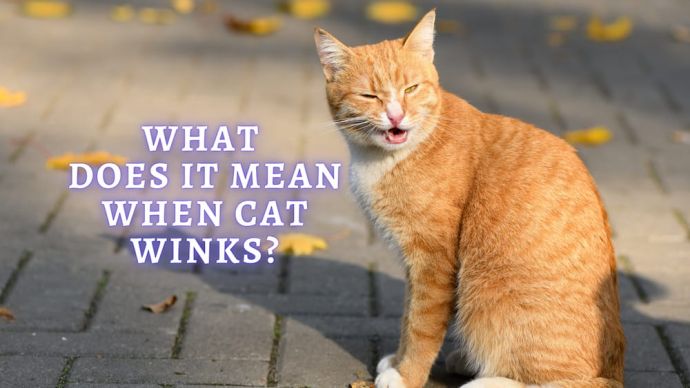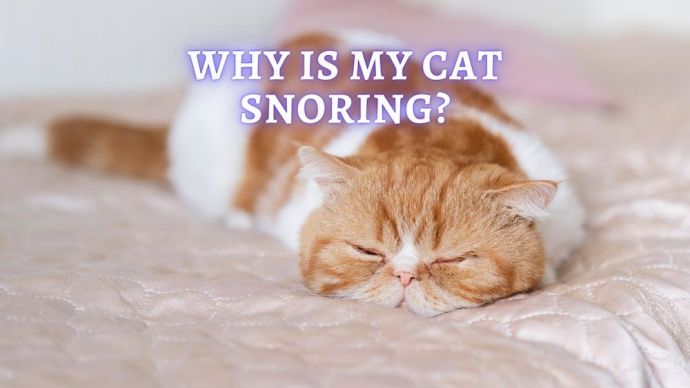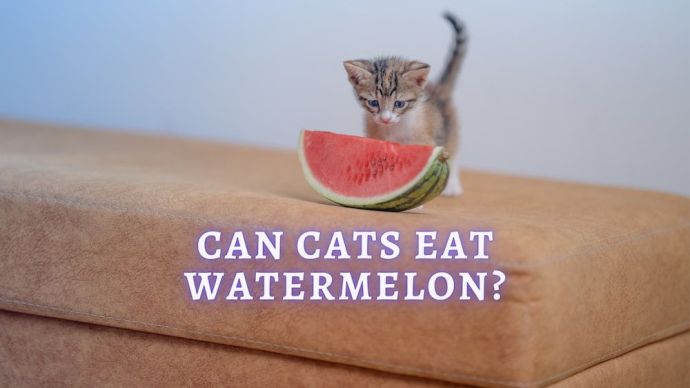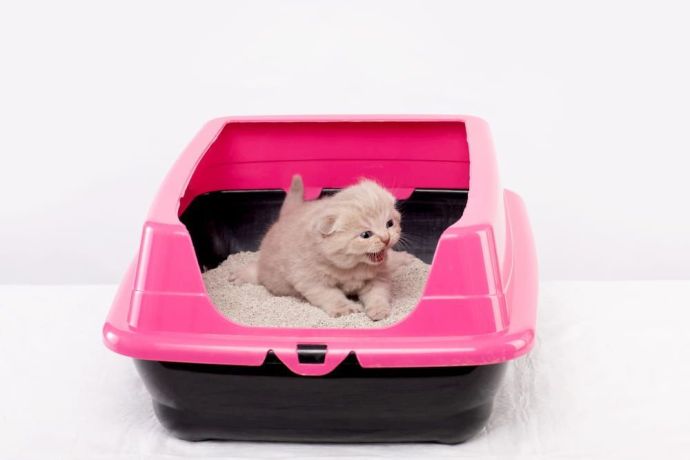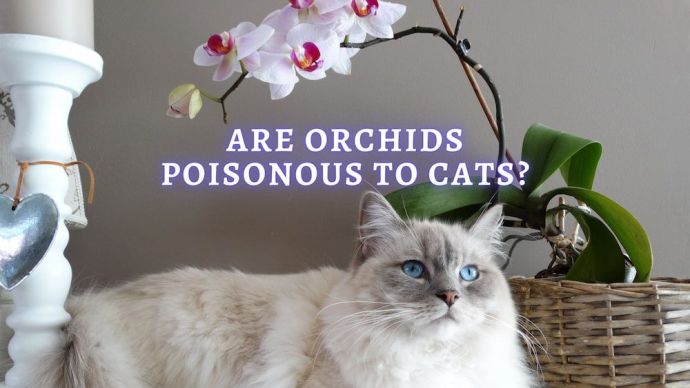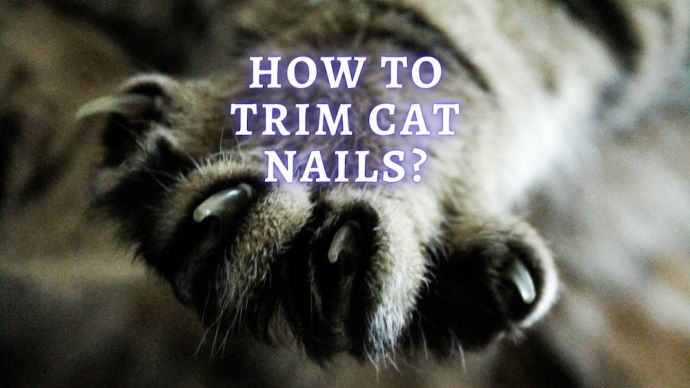IBD in Cats: Symptoms, Diagnose, Treatment and Prognosis (Vet-Approved Advice)
Written by:
Author: Vicki Smirnova
Vicki Smirnova is a professional writer and editor who adores animals and helps readers get along well with their pets. She has been working in digital media for more than 5 years and has great experience writing content about lifestyle, including pets. Vicki specializes in dog health and nutrition, cat feeding, dog training. She is an aquarium lover and is passionate to write about fish care at home. Also, Vicki headed several websites and worked as a news editor.
View all 244 articlesLearn about our editorial process and veterinary review board.
Reviewed by:
Veterinary review
by Dr. Sara Ochoa
Dr. Sara Redding Ochoa is a veterinarian with many years of experience and higher education. During her time in veterinary school she was able to learn form some of the most well-known veterinarians from all over the world. Sara lives happily with her husband Greg and her babies Ruby the schnoodle, and Bam-Bam her bunny. Dr. Sara Redding Ochoa has a passion and love for animals that makes her a wonderful asset to our team.
View all 13 articlesLearn about our veterinary review board
Viewed: 312
Updated on: 06/27/2023
Inflammatory bowel disease (also known as IBD) in cats is a condition where a cat’s gastrointestinal tract becomes chronically irritated and inflamed. Inflammatory cells invade the walls of the gastrointestinal tract, thickening them and disrupting the gastrointestinal tract’s ability to properly digest and absorb food. IBD can affect cats of any age, but the disease is most common in middle-aged and older cats.
If the disease affects the stomach, it is called gastritis; if the small intestine is enteritis, the large intestine is called colitis. In IBD, inflammatory cells invade the intestinal wall, disrupting normal digestion. The cause of IBD in cats has not yet been identified. Still, it is believed to be due to the interaction of several factors – diet, immune system function, and the state of the microbiome, which is a bacterial population in the intestine. [1]
What Causes IBD in Cats?
The cause of inflammatory bowel disease is unknown. Genetics, nutrition, infections, and immune system disorders may be the cause. IBD may not only be an actual disease but may be a characteristic response of the body to certain conditions caused by various factors:
- genetic factor;
- food intolerance reactions;
- food hypersensitivity reactions;
- violation of the composition of intestinal bacteria.
The development of the disease in a pet is affected by one, two, three, or four factors simultaneously. Traditionally, feline inflammatory bowel disease has been viewed as an immune-mediated or allergic condition. Presumably, the animal exhibits some perverse immune response to exposure to common antigens from the intestinal lumen, which can be bacteria, parasites, and food components. The disease’s essence is forming a perverted allergic response to ordinary substances in the intestines.
Symptoms of Inflammatory Bowel Disease in Cats
IBD is widespread in cats and may be the most common cause of vomiting and diarrhea in this species. Inflammatory bowel disease in cats is more common between the ages of 5-10 years, but the disease is also recorded at a younger age. A number of authors believe that IBD is somewhat more common in Siamese cats.
When taking a medical history, the animal often shows intermittent or persistent signs of gastrointestinal distress, which may include symptoms such as vomiting, diarrhea, loss of appetite, and/or weight loss. With a long course, there is often a deterioration in the quality of the coat.
Separately, it is worth mentioning the loss of body weight of the animal, without the development of any signs of damage to the gastrointestinal tract. The bottom line is that in feline inflammatory bowel disease this manifestation is widespread, and emaciation of the animal may be the only sign of feline IBD.
The main symptoms of IBD in cats are:
- Vomit
- Diarrhea
- Weight loss
- Change in appetite.
- Stomach ache.
- Presence of bright red blood on stool.
- Lethargic
- Rumbling in the stomach, gases.
These are quite common symptoms and they can be characteristic of many problems associated with diseases of the gastrointestinal tract and not only. Therefore, when diagnosing this problem, you should not rush – it is necessary to exclude all other possible, obvious pathologies.
As discussed earlier, IBD is associated with an inadequate immune response, so we are faced with disruption of the gut microflora, antibiotic resistance, poor dietary intake, and compromised gut barrier function.
Physical examination of the animal rarely reveals significant abnormalities. Subjectively, the veterinarian can identify the thickening of the intestinal loops against the background of the emaciation of the animal. However, physical examination findings in feline IBD are weakly specific. [2]
READ MORE: Cat’s Stomach Gurgling
How Do Vets Diagnose IBD in Cats?
How do you know if your pet has IBD? In some cases, medical history and ultrasound are enough, and sometimes it comes to a biopsy.
The main stages of establishing a diagnosis are:
- History of animal life. In the practice of a veterinarian, the diagnosis is regularly suspected only based on the medical history provided by the owner. Ultrasounds and blood tests are needed to confirm the suspected illness.
- Abdominal ultrasound. The study is conducted after your cat has been fasted for 12 hours. With proper preparation, an ultrasound provides information that will display the degree of chronic changes and inflammation in the gastrointestinal tract.
- General clinical blood test – often normal, but changes in the level of leukocytes and eosinophils affect therapy. Leukocytes are inflammatory cells. Eosinophils are cells whose levels rise during allergic reactions or parasitosis.
- Biochemical blood test. There is a lot of information in the study, but the level of blood proteins is important for the control of IBD. A strong decrease in the level of proteins in the blood leads to the formation of fluid in the abdominal and chest cavities. The accumulation of fluid in the abdominal and chest cavities in the patient leads to the development of shortness of breath.
- General analysis of feces. Testing for ova and protozoan cysts (general fecal analysis) is a routine test performed on patients with gastrointestinal symptoms.
- Biopsy of the intestine. The study helps to distinguish cancer from IBD. Helps to determine the nature of chronic inflammation, prescribing accurate therapy.
An extensive examination is required to make a diagnosis of IBD in cats, as many of the signs of IBD are commonly seen in other conditions. Your veterinarian will likely recommend a baseline blood, fecal examination, x-ray, or abdominal ultrasound to check for metabolic disease, feline leukemia, parasitic or bacterial infections, hyperthyroidism, and some types of cancer. Intestinal lymphoma, a form of cancer, can be particularly difficult to distinguish from IBD in cats. The veterinarian may also measure blood levels of B vitamins and folic acid, as IBD can interfere with the absorption of these vitamins from the gastrointestinal tract. A hypoallergenic food test may also be performed to rule out food allergies.
An accurate diagnosis of feline IBD requires a biopsy of the intestine or stomach and evaluation of the tissue under a microscope. A patient with IBD will have an increase in inflammatory cells in the intestinal wall. The types of cells found will indicate which type of IBD is present and help with treatment. Gastrointestinal biopsies can be done using a flexible camera called an endoscope that is passed through the mouth or rectum, or through abdominal surgery. Endoscopy is a less invasive procedure; however, surgery may be recommended in patients who are also suspected to have liver or pancreatic disease, so these organs may also be biopsied. Both endoscopy and surgical biopsy require general anesthesia, and the associated risks must be considered when deciding whether to perform these tests.
READ MORE: How to Deal With Cat Picky Eater?
Treatment and Prognosis for IBD in Cats
Treatment of intestinal inflammation in cats is carried out by a combined method: medication and diet therapy. Your cat may be recommended a diet with an unfamiliar low-fat protein, hydrolyzed protein, or special dietary fiber. It can be purchased at a veterinary pharmacy or online store as prescribed by your veterinarian. If a therapeutic diet plan is recommended for a cat, she should not eat other foods. It is especially not worth experimenting during the transition to a new food so that the veterinarian can evaluate the success of this plan in treating the symptoms of IBD.
The veterinarian will usually recommend treating intestinal parasites if this has not been done recently, and a combination of dietary modification and various medications as the first steps. There is no single best treatment, so your veterinarian may need to try several different diets or drug combinations to determine the best therapy.
If a cat is diagnosed as deficient in cobalamin, vitamin B12, and/or folic acid, another B vitamin, which is common in many cats with IBD, appropriate vitamin supplements will be prescribed.
IBD is often accompanied by detrimental changes to the gut microbiome, resulting in poor gut health, such as an increase in bad bacteria that cause disease. If there is not enough beneficial symbiotic bacteria to aid digestion, your doctor will recommend a probiotic and/or a specialized diet containing prebiotic fibers. In particularly severe cases or cases that do not respond to diet alone, steroids or other immunosuppressive drugs may be prescribed to the cat. [3]
Conclusion
Inflammatory bowel disease in cats is a complex interaction between the mucosal immune system and the gut microbiota of a genetically susceptible host. Potential genetic factors affecting barrier function or innate and adaptive immunity may predispose susceptible cats to chronic enteropathy, clinical symptoms of IBD, and microbial imbalance (dysbacteriosis). Environmental factors (food, exposure to enteropathogens, antibiotics intake, etc.) influence the occurrence or reactivation of inflammation (relapses).
Inflammatory Bowel Disease:
- It has a pedigree predisposition, but a purebred pet can also get sick;
- Symptoms vary (from chronic vomiting to eating disorders) and may be spontaneous;
- Several factors influence the development of the disease;
- Diagnosis includes basic blood tests, ultrasound, and of course, medical history;
- IBD is a complex condition that can be controlled by simple means.
IBD can often be controlled to keep affected cats healthy and comfortable. However, even with the right treatment, symptoms can come and go. Disease control requires strict adherence to dietary and medical treatments. Vigilant monitoring by the veterinarian and owner is also critical so that relapses can be assessed and dosages of long-term medications can be adjusted.
FAQ
What are the symptoms of IBD in cats?
The main symptoms of IBD in cats are vomiting, diarrhea, weight loss, abdominal pain, blood in the stool, lethargy, gas, and abdominal rumbling. IBD can be a debilitating problem for cats and should be diagnosed by a veterinarian. Consult your veterinarian if you notice any of these symptoms.
Can feline IBD be cured?
Inflammatory bowel disease can only be controlled, not cured. Be patient with the form of treatment suggested by your veterinarian and strictly adhere to the recommendations. Control depends on the correct selection of the diet, dosages of drugs, careful monitoring by the veterinarian and the owner, and the absence of other concomitant diseases.
How long do cats live with IBD?
Objective data indicate a high incidence and large mortality of cats from gastrointestinal disorders. However, with the right treatment and diet, the disease can be successfully controlled.
What triggers IBD in cats?
The cause of IBD is unknown, current evidence suggests that it results from a complex, abnormal interaction between the immune system, diet, bacterial populations in the gut, and other environmental factors. Based on the similarity of IBD in humans and dogs, genetic disorders of the immune system also play a role in feline IBD.
Article Sources:
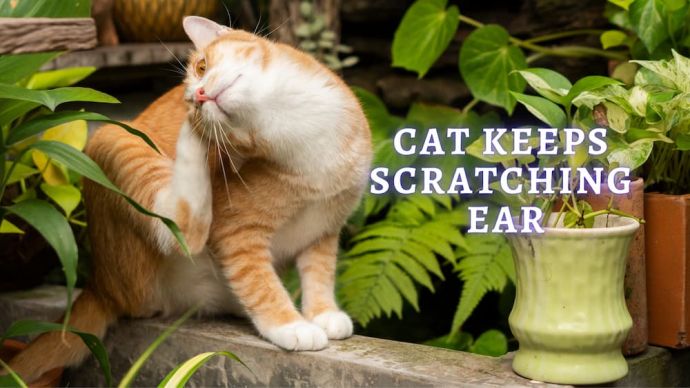 Cat Veterinary Tips Why is my Cat Scratching their Ears? (Veterinary Advice)
Cat Veterinary Tips Why is my Cat Scratching their Ears? (Veterinary Advice) - 1361
- 0
 Cat Care Why Does My Cat Attack My Legs? 10 Reasons Why and What To Do About It (Vet-Approved Advice)
Cat Care Why Does My Cat Attack My Legs? 10 Reasons Why and What To Do About It (Vet-Approved Advice) - 46013
- 21
 Cat Veterinary Tips Cat Stomach Gurgling: Vet Advice on Why is Your Cat Stomach Gurgling?
Cat Veterinary Tips Cat Stomach Gurgling: Vet Advice on Why is Your Cat Stomach Gurgling? - 36469
- 4
 Cat Veterinary Tips My Cat Lost its Voice: Can Cats get Laryngitis? (Vet Advice)
Cat Veterinary Tips My Cat Lost its Voice: Can Cats get Laryngitis? (Vet Advice) - 23554
- 13









